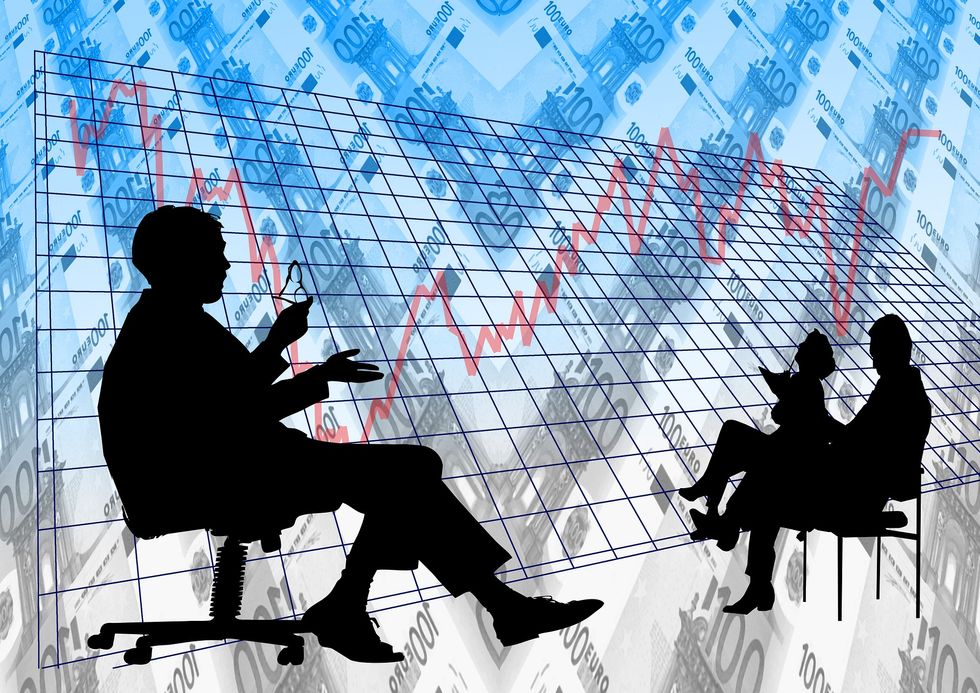Once again, I am here to teach you a little more about economics. I hope that my previous article was helpful. The overall goal of these articles are to be informative- and should help settle some minor debates about definitions. As I mentioned previously economics are not an exact science. I previously addressed macro and microeconomics- what are these two terms? How do these affect you? Well, the short answer is that it depends. As I previously mentioned- we do not all have that large of a sphere of influence within the macroeconomic aspect- which is why we have the aspect of microeconomics. Within society we engage and perform hundreds of transactions a week, and businesses process a very large volume of these daily. In this article we are going to talk about basic forms of economics which go beyond the movement of cash. Previously we discussed market elasticity, and now I'm going to factor those definitions into this article.
This movement of money through these transactions have an effect on both micro and macro economics. So lets get some definitions down: The difference between micro and macro economics is simple. Microeconomics is the study of economics at an individual, group or company level. Macroeconomics, on the other hand, is the study of a national economy as a whole. Microeconomics focuses on issues that affect individuals and companies. For example when we go to the store and buy ourselves coffee in the morning, we are operating on a microeconomics level, when we examine this from the perspective of a business chain along the eastern seaboard, we are crossing into the Macroeconomics level.
Opportunity costs:
People constantly face trade-offs. They have to make choices due to scarce resources. As a result, they can’t get everything they want, so they have to pick certain things over others. Opportunity costs describe the value of the next best alternatives that are given up during this process in order to get something else. In my last article I talked about how everything you do has a price, whether it's time, effort, money, or something else. A great real life example of this is taking off a week of work to travel to Europe without paid vacation. You may see it as just taking vacation, but you not only lose the money you would have made by not working, but you also spend money and in that sense that opportunity cost is high, however you are exchanging your time and paying a higher price for your vacation than you might have considered. So you've traveled to Europe and left the US. You are no contributing to global macroeconomics since you've left your home, and are exchanging money for goods and services elsewhere.
Trade and exchange:
An understanding of 21st century globalization begins with one principle, the principle of exchange. People will only exchange if they expect to gain more than they give. When they exchange, they give up something of lesser value to themselves for something they want more. As a result, both parties are better off. Juan trades Maria his apple for her orange. He likes the orange better than the apple; she likes the apple better than the orange. Both Juan and Maria are better off after the trade. (If Juan is trading with Maria just to get to know her better, he is still gaining more than he gives even if he doesn't like oranges at all!) The value of the exchange is subjective. The principle of exchange states that voluntary exchange benefits both parties and increases the well-being of both traders.
Let's define comparative advantage: If an economic actor has the ability to produce a good or service at lower opportunity costs than another actor, they are said to have a comparative advantage. In the presence of comparative advantage, all actors can benefit from cooperation and trade if they specialize in producing and exporting the goods and services they can produce more efficiently than others.
Now, we can stop looking at economics as more than just the exchange of money. From a business process standpoint, economics have their own ebb and flow. Just as you can trade a friend lunch for a ride to a place we deal with some new concepts. This week, I will introduce comparative advantage. We'll say your friend Harry, has a car, and you do not for whatever reason. You and Harry are both hungry so you offer to buy Harry lunch, in exchange for a ride to somewhere you need to go. Harry agrees and you both get something you want. Now, what just happened is that you used Harry's comparative advantage that is to say he has a car and you do not. Harry has used his vehicle and time to gain paid lunch. Everyone wins here.
referring back to to the ebb and flow:
Fiscal policies have influence on economics.
One way for the government to monitor and influence a country’s economy is by adjusting its spending and tax rates. The concept of fiscal policy states that increased government spending and lower tax rates will stimulate economic activity, whereas a decrease in government spending and higher tax rates will decelerate it. Thus fiscal policy can be used as a means to smooth economic fluctuations (i.e. booms and busts).
In conclusion- we have thousands of factors that affect how much every single thing we buy, whether it be fuel costs going up- thus raising the price of logistics, thus raising the price of shipping and handling, and finally the cost is raised in store because supply and demand curve has shifted and prices have adjusted accordingly. Every single day economics affects you- even if you do not buy anything, by doing that you have contributed to supply and demand. It is interesting to see the dots start to connect in your life with everything you purchase and even the things you don't.
















